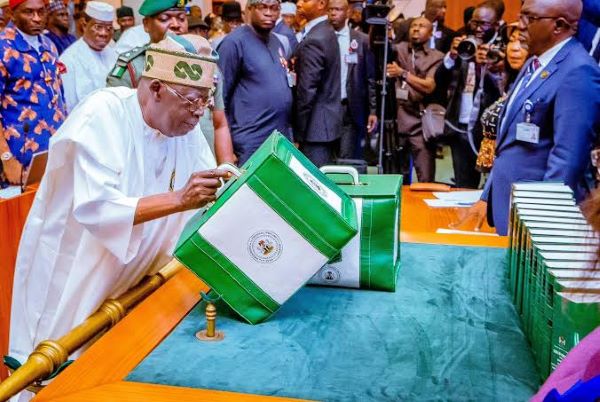President Bola Ahmed Tinubu on Wednesday presented Nigeria’s 2025 Appropriation Bill to the National Assembly. This marks Tinubu’s second full budget since taking office in May 2023, showcasing his administration’s priorities for the upcoming year.
Tagged the ‘Restoration Budget: Security, Peace and Building Prosperity’, the bill was approved by the Federal Executive Council on Tuesday.
It projects N34.8 trillion in revenue and a total expenditure of N47.90 trillion, leaving a projected deficit of N13.13 trillion, equivalent to 3.89% of Nigeria’s GDP. Debt servicing alone accounts for N15.81 trillion of the spending plan, underlining the country’s fiscal challenges.
The budget is based on key assumptions, including a crude oil benchmark price of $75 per barrel, daily production of 2.06 million barrels, and an exchange rate of N1,500 to the dollar.
The largest allocation of N4.91 trillion is directed towards defence and security to address safety and stability. Infrastructure projects receive N4.06 trillion, while education is allocated N3.5 trillion, including N50 billion dedicated to the Federal Government’s student loan scheme. Healthcare is allocated N2.48 trillion to improve services.
Compared to the 2024 budget, there are notable increases. Education funding has risen sharply from N1.08 trillion in 2024 to N3.5 trillion in 2025.
Defence and security funding increased from N3.25 trillion to N4.91 trillion. Healthcare saw its budget grow from N1.08 trillion to N2.48 trillion.
Infrastructure spending has more than tripled, moving from N1.32 trillion in 2024 to N4.06 trillion for the coming year.


